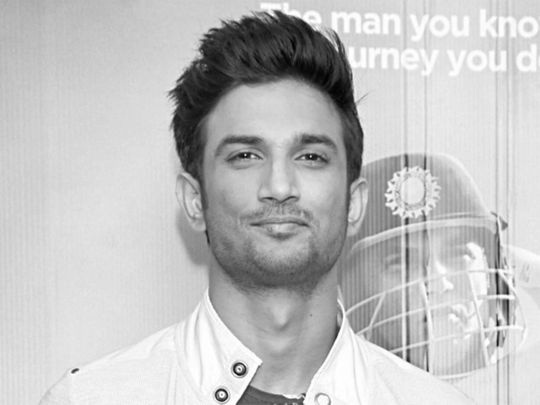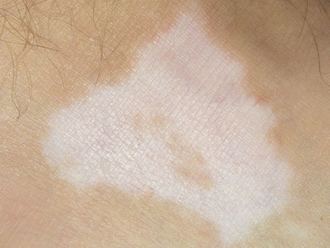
The recent story of Sushant Singh Rajput, an Indian film actor with much accolades to his name cementing his reputation in the world of Bollywood, has been not only circulating in the traditional media and social media, but also is waking up sleeping culprits, victims, and nay-sayers across several continents.
I am not much of a Bollywood news keeper but being associated to the Hindi film cinema since childhood, I have a sense of understanding of the industry, country, and the culture.
To many who don’t know Sushant Singh Rajput, please take a few minutes to look him up prior to continuing to read this article. Context is especially important before any person, or their actions, can be made sense of, while, "judging” was never the right of an average human being like us and who possess an average mind as perhaps we do. I reference this to the quote by Socrates: “The only true wisdom is in knowing you know nothing”, and truly with that put in practice, will you see more as veils of illusion are lifted by the ropes of knowledge and the path lighted by enlightenment of wisdom. One must not act upon ill-context of any incident, event, or occurrence.

The tragedy of Sushant Singh Rajput is quite a different one, very much separated from many others which requires to be shed some light upon by every individual who comes across this story. You may ask “why” at this point, and there are several points to this one:
- Sushant Singh Rajput was a celebrity. His fame brought much attention to the subject of "mental health", "depression" and "suicide".
- The actor was also said to be a victim of marginalization by the Bollywood "fraternity".
- His death has surfaced much hidden dark side of the Bollywood industry and its psychological impact on the individuals involved in the showbiz.
There is much more to say that words cannot suffice. However, what must be said at the least, is this: “mental health” and “depression” had a key role in his tragedy. This incident has brought the subjects to the limelight and requires momentum to be addressed.
While this particular case has an angle to it, let us address a broader view first before divulging and zooming into this story. Mental health is a subject that is very much underrated, un-talked, and taboo in our society of the East (specially). We are made to believe (and act upon, as well as, develop thought process around this belief) that mental health is irrationality, insanity and lunacy, which is either silly, petty, and irrelevant, or the other extreme, that the ones going through this condition should be an outcast and/or limited to mental hospitals, by the society we dwell in.
Such belief system ignites the school of thought that isolates such individuals from the mainstream society and marginalize their existence. This belief compels the “fighters” (I shall call them fighters than “sufferers”, because their struggle requires the strength that we all combined can't match) to digest their own pain, feelings, and emotions instead of coming forth with them seeking assistance to overcome. Even in wars there are commanders, generals, and soldiers, then why should this “fight” be any different to be fought alone in confinement? Due to such reputation risks and social pressure, many such cases and individuals go undetected, untold, and unseen.
Mental health is a reality as much as the sun and the moon are. With the emergence of the novel coronavirus – COVID-19 (referred going forward as COVID), this subject has taken a front seat across several countries, economies, and societies. It took a disease that infected over 7 million individuals and killed over 400 thousand to show us the reality that has always been in our surroundings, and as obvious as the sunlight and the darkness of the night. The lockdown across the countries to tackle COVID has had a grave impact on people across several pillars of life as we know it, including social well-being, mental health, and depression. With social life, support systems, and care coming to a near halt during lockdowns, it was all on individuals to either “fight” or take the “flight” from this situation and internal circumstances. Sadly, and painfully “flight” was the option of choice for this celebrity.
Mental health effects a lot more individuals than COVID has to date (not undermining COVID effect, rather for perspective formation only). According to National Alliance on Mental Illness – NAMI, 19.1% of U.S. adults experienced mental illness in 2018 (47.6 million people). This represents 1 in 5 adults. 4.6% of U.S. adults experienced serious mental illness in 2018 (11.4 million people). This represents 1 in 25 adults. This is a pandemic that has been with us for years and decades but not acknowledged by governing bodies to the severity of COVID.
I have no words after reading the above. Words like “common illness” associated with a condition that impacts multi-millions every year? How is that “common illness”, it is not at all a "common" nor an "illness". The term rather should be “serious condition”, because it is both "serious" and a "condition". In order for us to defeat the taboo that engulfs this topic, we must not associate depression or mental health with a negative word such as “illness”. It is a grave state that takes away a decent-sized village (or small city) population worth of lives globally every year, many of those in the young age bracket of 15 to 29. According to WHO, depression is a leading cause of disability worldwide and is a major contributor to the overall global burden of disease.
I believe we all have yet to understand the gravity of this “serious condition”. Depression is real, mental health is a concern across the globe with grave consequences, a silent inner killer that, which when at worst, can lead to death. Repeating Socrates, rightly so at this point: "The only true wisdom is in knowing you know nothing". Truly, what do we know?
I’d like to leave you with some food-for-thought to ponder upon:
- What are we doing about it as individuals, families, and societies to help ourselves and those “fighters”? Are we sharing our experiences (if we have been through this) with them?
- Are we checking in with our own families to re-enforce their well-being?
- What is being done to reclassify this serious condition to a level it would attract international attention by the governing bodies? What tools and mechanisms have been provided, at several levels of a governance structure, for the “fighters” to make it through such a condition?
- What will it take to change our attitude towards this “taboo” subject to an “accepted” reality? And “When”?
This article has no end. Intent is not to have an “end”, but rather a "beginning" of the change.
Hassan Ali Habib is an Emirati writer








